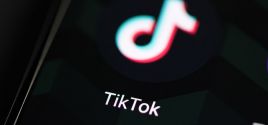Passports to get `biometric' scanSoftware looking for security risks to screen against terrorist databaseToronto Star Jul. 25, 2006 |
Popular 
Mike Johnson Pushes Debunked Lie That Israeli Babies Were 'Cooked in Ovens' On October 7

'It Has to Be Stopped': Netanyahu Demands Pro-Palestine Protests at U.S. Colleges Be Shut Down

'These Protesters Belong in Jail': Gov. Abbott Cheers Arrest of Pro-Palestine Protesters at UT Austin

Claim Jewish Student Was 'Stabbed In The Eye' by Pro-Palestine Protester Draws Mockery After Video Released

'We Aren't Going Anywhere': TikTok CEO Vows to Fight TikTok Ban in Court
 OTTAWA—A high-tech system to prevent terrorists and other criminals from obtaining passports will eventually contain the photos of some 21 million Canadians, new documents show. Canada's passport office has officially begun looking for a vendor to supply a computerized tool to screen applicant photos against images of suspects on security watch lists. Passport Canada's facial-recognition project, in the works for three years, represents one of the first large-scale federal forays into the sphere of biometrics. Biometric technologies use measurable characteristics, such as a person's facial image, iris scan or fingerprint, to confirm his or her identity. The systems have attracted security-conscious converts in the post 9/11 era. But critics argue there are too many inaccuracies in the technology while civil libertarians have raised concern about undue surveillance. "We don't know really much about how these databases get made and who is programming them," said Simone Browne, a teacher and doctoral candidate at the Ontario Institute for Studies in Education at the University of Toronto. "How is race reflected in this? And gender? And nationality?" A contract for the facial-recognition initiative is to be awarded by mid-November, said Francine Charbonneau, a Passport Canada spokeswoman. A regional trial will be conducted next spring with the aim of making the tool available to passport offices across the country by fall 2007. According to recently released project documents, the photos of 1 million passport applicants will initially be loaded into the database, with approximately 4 million new photos being added in each of the next five years. Passports are valid for five years, meaning the photos of all holders would be in the system by 2012. Applicant photos would be electronically compared with the millions of pictures in the database. Those renewing their passports could expect one match: the photo submitted with their last passport application. But an image match could reveal an applicant already has a passport under a different name. Applicant photos would also be run against pictures supplied by other federal departments and foreign governments, said Charbonneau. The aim is to prevent people who are ineligible for a passport, including national security risks and certain convicted criminals, from obtaining one. Officials have yet to decide which databases will be routinely compared, Charbonneau said. "We're only in talks with certain departments on seeing how we could benefit from their lookout list." Searching the database is expected to take just seconds. A match that raised concerns would trigger an investigation by passport agency security personnel. Critics of facial-recognition programs contend they are notoriously inaccurate and have difficulty reading particular skin tones. Charbonneau insists the technology cannot be fooled by such things as gender, ethnicity or changes in appearance like a new hairstyle or eyeglasses. |



